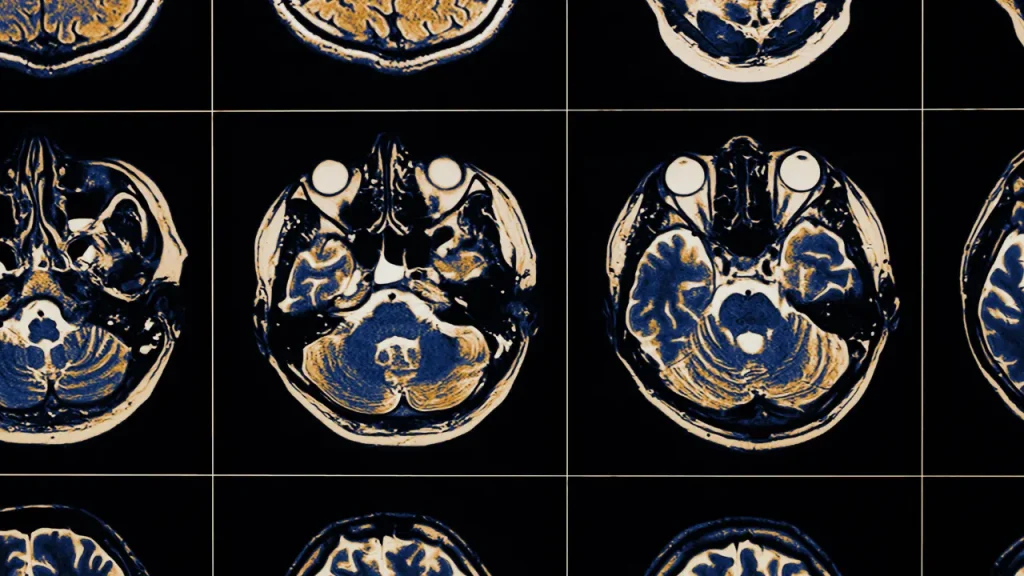Anxiety has become a pervasive concern in the lives of many Americans, with a substantial portion of the population grappling with its effects. According to data from the National Institute of Mental Health (NIMH), anxiety disorders affect an estimated 31% of adults in the United States at some point in their lives. This staggering statistic reflects the widespread impact of anxiety on mental health across the nation. Additionally, the Anxiety and Depression Association of America (ADAA) reports that anxiety disorders are the most common mental illness in the U.S., affecting 40 million adults aged 18 and older, or about 18.1% of the population every year.
While common medical treatments for anxiety include medications like Xanax, the associated side effects may be doing more harm than good. This concern has led many people to explore alternative options in the world of health and nutrition supplements.
You May Also Like:
Discover Your Brain’s True Potential: The Top Nootropics for Enhanced Cognitive Function and Focus
Know Your Risk: Does Xanax Cause Dementia? The Surprising Ways Xanax Impacts the Brain is an original (NootropicsPlanet) article.
Does Xanax cause dementia: understanding the complexity of dementia
Before exploring alternatives, it is important to understand what dementia is as well as how Xanax affects the brain.
Dementia is a broad term encompassing a set of symptoms linked to a decline in cognitive function that interferes with daily life. It is not a specific disease but rather a syndrome caused by various disorders affecting the brain. Common symptoms of dementia include memory loss, impaired judgment, difficulty with problem-solving, and changes in language abilities. Progressing stages may bring challenges in performing familiar tasks, mood changes, and difficulties in social situations.
The most prevalent cause of dementia is Alzheimer’s disease, accounting for a significant majority of cases. Other common causes include vascular dementia, which results from reduced blood flow to the brain, and Lewy body dementia, characterized by abnormal protein deposits in the brain. Additionally, frontotemporal dementia impacts the frontal and temporal lobes of the brain, leading to changes in personality and behavior.
Dementia has profound effects on the brain, causing a progressive loss of neurons and the connections between them. Abnormal protein accumulations, such as beta-amyloid plaques and tau tangles in Alzheimer’s disease, contribute to the disruption of cellular communication and eventual cell death. These structural changes lead to the observed decline in cognitive abilities.
The impact of dementia extends beyond the brain, affecting various bodily functions. Changes in motor skills, coordination, and balance can occur, increasing the risk of falls. People with dementia may also experience changes in appetite, weight loss, and disruptions in sleep patterns. As the condition advances, it can lead to a decline in overall physical health, increasing vulnerability to infections.
Given the complexity of dementia and its diverse causes, management often involves a multidisciplinary approach that may include medication, cognitive therapy, and lifestyle modifications. While current treatments aim to alleviate symptoms, ongoing research seeks to better understand the underlying causes of dementia and develop more effective interventions for this challenging condition.

Does Xanax cause dementia: Xanax and the brain
Xanax, the brand name for alprazolam, belongs to the benzodiazepine class of medications and is commonly prescribed to treat anxiety and panic disorders. It acts by modulating the activity of gamma-aminobutyric acid (GABA), a neurotransmitter in the brain that inhibits neuronal activity. Xanax enhances the effects of GABA by binding to specific receptors, resulting in a calming effect on the central nervous system. This leads to reduced anxiety, muscle relaxation, and a sedative effect, making Xanax effective for short-term relief from acute anxiety symptoms.
However, concerns have arisen regarding the use of benzodiazepines, including Xanax, and their potential connection to dementia. Some studies have suggested an increased risk of dementia in people who use benzodiazepines, especially over an extended period. A 2014 study published in the British Medical Journal (BMJ) found an association between long-term benzodiazepine use and an increased risk of dementia in older adults. The study emphasized the importance of carefully considering the risks and benefits of benzodiazepine use, particularly among older populations where the potential cognitive effects may have more significant implications.
It’s essential to note that the relationship between benzodiazepine use and dementia is complex, and more research is needed to establish a definitive causal link. While some studies suggest an association, others have found conflicting results. Factors such as the duration of use, dosage, and individual health conditions can influence the potential risk. Healthcare professionals carefully weigh these factors when prescribing benzodiazepines and may explore alternative treatments or closely monitor patients to mitigate potential cognitive effects. As research in this area continues, the understanding of the nuanced relationship between benzodiazepines, including Xanax, and dementia will likely evolve.

Does Xanax cause dementia: exploring GABA supplementation as an alternative
Gamma-aminobutyric acid, commonly known as GABA, is a neurotransmitter with crucial roles in the brain and body. As an inhibitory neurotransmitter, GABA plays a fundamental role in regulating neuronal activity by inhibiting nerve impulses, thus acting as a calming agent in the central nervous system. GABA is synthesized from the amino acid glutamate, and its effects are primarily mediated through GABA receptors found on the surface of nerve cells.
In the brain, GABA acts as a crucial modulator, balancing the excitatory effects of neurotransmitters like glutamate. Imbalances in this delicate equilibrium can lead to various neurological issues, including anxiety disorders and epileptic seizures. GABA’s calming influence helps prevent overstimulation of nerve cells, contributing to emotional well-being and overall mental stability.
Considering GABA’s role in relaxation and anxiety reduction, there has been growing interest in GABA supplements as a potential alternative to medications like Xanax. GABA supplements are designed to enhance the inhibitory effects of GABA in the brain, promoting relaxation and potentially alleviating symptoms of anxiety. While research on the efficacy of GABA supplements is ongoing, some studies suggest they may have a calming effect, making them an area of interest for people seeking natural alternatives to traditional anti-anxiety medications.
It’s essential to note that the effectiveness of GABA supplements can vary among individuals, and the ability of GABA to cross the blood-brain barrier—a necessary factor for its impact on the central nervous system—is a subject of ongoing research. As with any supplement, consulting with healthcare professionals is advisable, especially for those considering GABA supplements as an alternative to prescription medications. The decision to use GABA supplements or medications like Xanax should be made in consultation with a healthcare provider, considering individual health conditions and the potential risks and benefits associated with each approach.
Does Xanax cause dementia: finding the right GABA supplement
There are many GABA supplements on the market today, and trying to find the right one can sometimes be overwhelming. Levium stands out as an excellent option due to its carefully crafted ingredient formula designed to enhance the effects of GABA.
One key component of Levium is magnesium, an essential mineral known for its calming effects on the nervous system. Magnesium plays a crucial role in GABA receptor function, enhancing the inhibitory actions of GABA and promoting relaxation.
Ashwagandha, another ingredient in Levium, is an adaptogenic herb with a long history in traditional medicine for stress management. Ashwagandha helps regulate the body’s stress response by balancing cortisol levels, thus complementing the calming effects of GABA. This adaptogenic synergy creates a robust approach to stress relief, addressing both physiological and neurological aspects of the stress response.
L-Theanine, found in tea leaves, contributes to Levium’s calming effects by promoting the production of alpha brain waves, associated with relaxation and heightened focus. Chamomile flower extract, known for its soothing properties, interacts with GABA receptors, further enhancing the calming effects. These ingredients work together to create a greater sense of tranquility.
Levium also includes luteolin and polygonum cuspidatum, adding an extra layer of efficacy. Luteolin, a flavonoid found in various plants, exhibits anxiolytic properties by interacting with GABA receptors, reinforcing the calming effects of GABA. Polygonum cuspidatum, a source of resveratrol, contributes antioxidant support, protecting neurons from oxidative stress and complementing the overall stress relief strategy.
The combination of these ingredients in Levium establishes a multifaceted approach to anxiety reduction. By enhancing GABA’s inhibitory actions, regulating stress response, and providing antioxidant support, Levium aims to provide a holistic solution to the complex challenges of stress and anxiety. As with any supplement, individual responses may vary, and consulting with healthcare professionals is advisable, especially for those considering alternative options to traditional anti-anxiety medications.

Does Xanax cause dementia: Levium’s commitment to product quality and sustainability
Levium also stands out for its high-quality ingredients and its commitment to sustainability, setting itself apart in the market. A key aspect contributing to its quality is its clean formulation. Levium contains no preservatives, sweeteners, or carbohydrates, emphasizing a minimalist and natural approach to stress relief. This dedication to simplicity ensures that users receive the active ingredients without unnecessary additives, aligning with the growing demand for transparency and purity in health products.
Furthermore, Levium’s dedication to sustainability extends to its packaging. The product is presented in eco-friendly packaging, reflecting a conscious effort to minimize its environmental impact. Eco-friendly packaging typically involves the use of recyclable materials or innovative designs that reduce waste. By adopting such practices, Levium demonstrates a holistic approach to wellness that encompasses not only the health of the consumer but also the health of the planet.

Does Xanax cause dementia: adopting an anxiety-fighting life plan
While supplementing with GABA can be a valuable component in managing anxiety, adopting certain dietary and lifestyle changes can significantly contribute to a holistic approach to anxiety reduction. A balanced and nutritious diet plays a crucial role in supporting mental health. Incorporating whole foods such as fruits, vegetables, lean proteins, and whole grains ensures that the body receives essential nutrients, promoting overall well-being. Limiting the intake of caffeine and refined sugars can also be beneficial, as these substances can contribute to energy fluctuations and heightened nervousness, potentially exacerbating anxiety.
Regular physical activity is a potent strategy for anxiety reduction. Exercise prompts the release of endorphins, the body’s natural mood lifters, and contributes to a sense of well-being. Activities such as walking, jogging, or yoga can be particularly effective in promoting relaxation and reducing stress.
Prioritizing sleep is another critical factor in anxiety management. Establishing a consistent sleep routine and creating a conducive sleep environment contributes to better rest, allowing the body and mind to recover and cope with stress more effectively. Mindfulness practices, including meditation and deep breathing exercises, offer effective tools for stress reduction. These techniques help calm the mind, enhance focus, and encourage a present-moment awareness that can mitigate the impact of stressors.
Effective time management is essential for anxiety reduction. Breaking tasks into manageable steps, setting realistic goals, and establishing boundaries can help prevent feelings of being overwhelmed. Building a strong support network is also vital. Cultivating positive social connections and maintaining open communication with friends, family, or a support group provides an emotional outlet and reinforces a sense of community, reducing feelings of isolation and anxiety.
These diet and lifestyle changes not only contribute to anxiety reduction but also have potential implications for cognitive health. Research suggests that adopting a healthy lifestyle, including a balanced diet and regular exercise, may lower the risk of dementia and cognitive decline. By promoting overall well-being, these changes create a foundation for long-term mental and cognitive health and may provide an alternative to medications like Xanax, with potentially risky side effects.
Gone are the days when prescription medication was the only option to mitigate anxiety. Research shows that GABA supplements like Levium, alongside healthy diet and lifestyle choices, might also be effective and don’t carry with them the risk of cognitive decline. As with any health-related decision, consulting with healthcare professionals first is always the best option when stopping or changing a medication protocol.

Further Reading
MedicalNewsToday: What to know about GABA
Cleveland Clinic: Gamma-Aminobutyric Acid (GABA)
Washington Post: What to know before you try to taper off from benzodiazepines
New York Post: Popular ‘Benzo’ drugs linked to suicide, brain damage — even if you stop taking them: study
Business Insider: Xanax: Side Effects, Addiction, Risk Factors, Drug Interactions
Important Note: The information contained in this article is for general informational purposes only, and should not be construed as health or medical advice, nor is it intended to diagnose, prevent, treat, or cure any disease or health condition. Before embarking on any diet, fitness regimen, or program of nutritional supplementation, it is advisable to consult your healthcare professional in order to determine its safety and probable efficacy in terms of your individual state of health.
Regarding Nutritional Supplements Or Other Non-Prescription Health Products: If any nutritional supplements or other non-prescription health products are mentioned in the foregoing article, any claims or statements made about them have not been evaluated by the U.S. Food and Drug Administration, and such nutritional supplements or other health products are not intended to diagnose, treat, cure, or prevent any disease.


